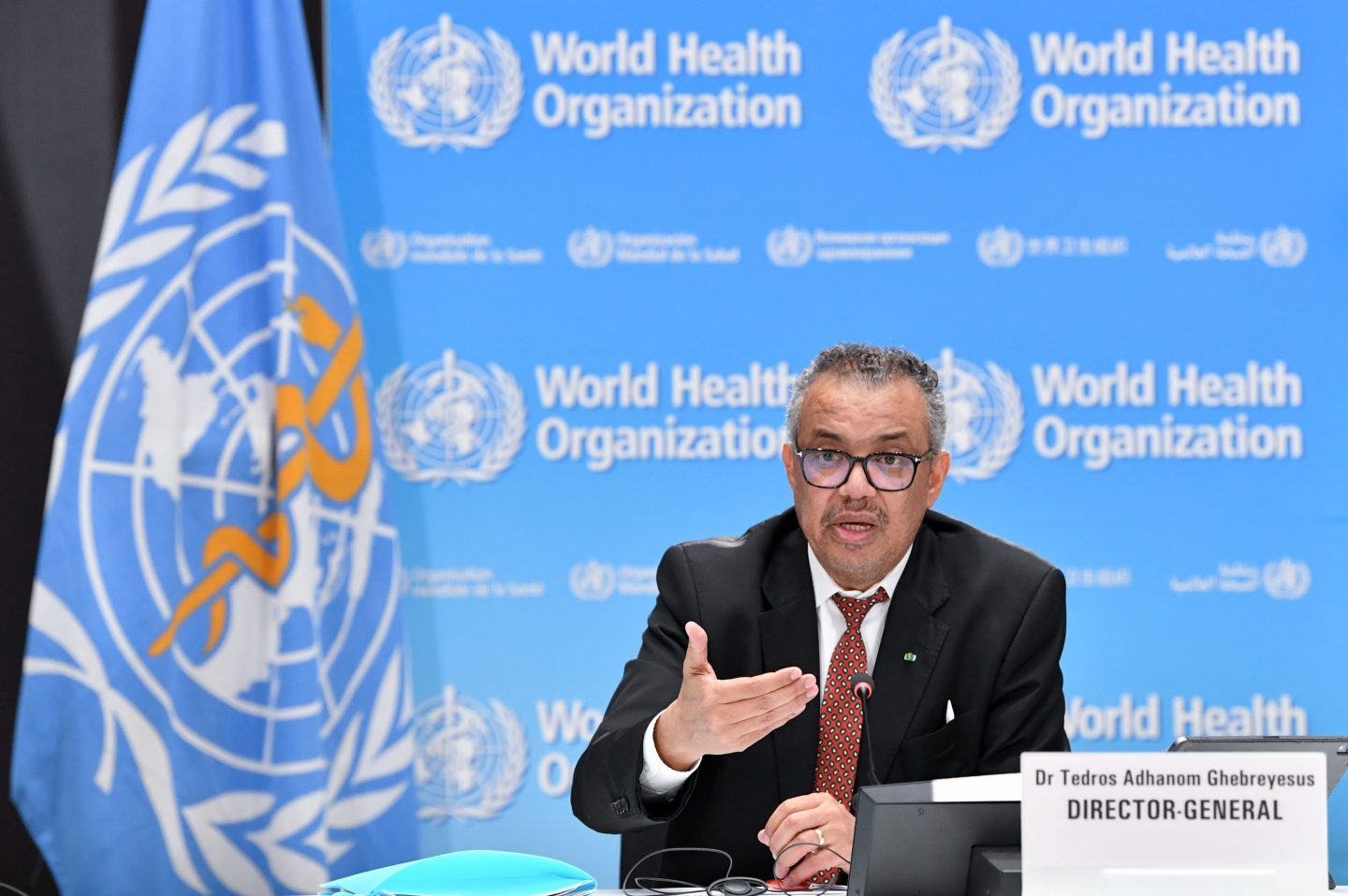Good morning, Peter Vanham here in Geneva, filling in for Alan.
Is anyone still afraid of the pandemic? As the world faces recession fears, bank failures, spiraling inflation, the war in Ukraine, A.I. disruption, and U.S.-China tensions, pandemic concerns may well have fallen out of the top 5 worries of most CEOs.
Not so for Dr. Tedros Adhanom Ghebreyesus, director general of the World Health Organization, whom I met in his office in Geneva earlier this week. His top concern, he told me, is that the world may not properly prepare for the next pandemic—and that we haven’t learned from the last.
“If the world does not learn from our past mistakes with COVID, then future generations will question what we did to improve from the pandemic,” he said.
Today, the WHO’s hope is set on a “Pandemic Accord,” which the organization wants to finalize by this time next year. Its “zero draft,” distributed earlier this year to the WHO’s 194 member states, puts an emphasis on a more equitable distribution of pandemic-related products and “time-bound waivers of intellectual property rights,” a clause that is sure to get the attention of Big Pharma.
Yet Tedros is not as worried about pharma as he is about what he calls “fake news.” “The discourse in many countries, including from leading public figures, is against learning from mistakes,” he said, mentioning Elon Musk, among others, by name. “Musk […] communicated about the WHO taking sovereignty. Other politicians and commentators have done the same. This is just false, and it is dangerous,” he said. (Tedros sparred with Musk on Twitter over the Pandemic Accord in March.)
In other news from Geneva, the World Economic Forum, where I previously worked, launched its latest chief economists outlook this week. Looking in their crystal ball, 45% of those surveyed predicted a global recession in the next 12 months. Another 45% did not expect a recession. Call it a draw, I guess.
Yet the economists did unanimously agree on one thing: 100% said they expected changes in the structure of global supply chains over the next three years. Expected winners will be India (73% expect a positive effect), and Southeast Asia (63%), while the big loser, according the surveyed economists, will be China (72% expect a negative effect).
More news below.
Peter Vanham
peter.vanham@fortune.com
@petervanham
TOP NEWS
Cold coffee
Starbucks shares fell 5.6% in after-hours trading on Tuesday despite the company beating expectations on quarterly sales and profit. The coffee company posted a strong recovery on sales in China, following the country’s reopening after tough COVID controls. Yet Starbucks chose not to update its full-year guidance, citing concerns of slower growth in the China market, rattling investors. Financial Times
ESG bans
Florida Gov. Ron DeSantis barred officials from investing public money based on environmental, social and governance (ESG) factors in a sweeping law signed Tuesday. Conservative politicians claim the idea of sustainable investing is really a cover for an ideological agenda on matters like climate change. Business groups worry anti-ESG bills are unworkable and present financial risks for both companies and state residents. Reuters
Data leaks
Microsoft is reportedly pitching a more expensive “private” version of ChatGPT for enterprise clients to reassure them that developers won't use sensitive information to train their A.I. models. OpenAI launched a similar “incognito” mode for ChatGPT last month. Employees have already leaked data to the A.I. tools: Samsung banned employee use of chatbots on Monday after one engineer gave ChatGPT confidential source code to fix a faulty database. The Information
AROUND THE WATERCOOLER
Managers want workers back in the office in the name of productivity—but employees have very different ideas about what productivity actually is by Orianna Rosa Royle
Amazon’s cloud business is clamping down on managers’ freedom to hire in latest cost control—leaked memo by Kylie Robison
Charles Schwab’s daughter thinks Americans need to know more about money—and is cautious of crypto by Anna Tutova
Warren Buffett served Japan’s top bosses glasses of Coke while he interviewed them, searching for his next major investment by Eleanor Pringle
Gemini launches offshore derivatives platform as Winklevoss twins tire of U.S. crypto quagmire by Leo Schwartz
The first female fighter pilot in the U.S. Air Force says 30 years of women in combat has made the military stronger by Emma Hinchliffe and Kinsey Crowley
This edition of CEO Daily was edited by Nicholas Gordon.
This is the web version of CEO Daily, a newsletter of must-read insights from Fortune CEO Alan Murray. Sign up to get it delivered free to your inbox.













